Learn everything you need to know about using oat flour. Whether you're just starting to use it or you're a seasoned oat flour baker, this is your ultimate guide. From what it is and nutritional information to tips for measuring, storing and more, find the answers to all of your questions!
Oat flour has become my go to flour for baking over the past few years and in that time, I have learned a lot about it!
From recipe successes (like Chocolate Cookies) to recipe failures (like my first few test batches of Banana Bread), I've gotten a good feel for what will work, what won't and more.
So let me teach you all about oat flour!
Oat Flour 101
What is Oat Flour
Oat flour is a type of flour made entirely from ground oats. Most often, they are made from ground rolled oats but depending on the brand, they may also be made from ground, hulled oat groats.
Composed of only oats, it has a subtle sweetness and nuttiness to it, just like oatmeal.
How is Oat Flour Made
Oat flour is made by grinding oats until they reach a fine, powdery consistency.
You can make it at home by grinding rolled oats (NOT steel-cut) in a high powered blender or food processor until very fine or you can purchase oat flour from most grocery stores.
Note that, unless you have a really good blender, it can be difficult to make oat flour at home that is a fine enough consistency for all recipes.

Nutrition
Is Oat Flour Healthy?
Oat flour is made of simply ground oats and therefore has the same nutritional profile.
Oat flour is rich in fiber, including beta-glucan, protein, vitamins, and minerals, including iron, magnesium, and zinc. Oats are thought to promote heart health, and help regulate blood sugar levels. (Source: Healthline)
Benefits of Oat Flour
- Gluten-Free: Naturally free from gluten, it is an excellent option for most with gluten sensitivities or celiac disease. *Use certified GF to ensure it has not been cross contaminated in processing.
- Rich in Fiber: It contains 3 grams of fiber per 30 gram serving, as opposed to 1 gram of fiber for the same portion of all purpose flour.
- Nutrient-Dense: It contains a variety of vitamins and minerals including manganese, iron, magnesium and zinc.
- Heart-Healthy: It contains beta-glucan, a type of soluble fiber that has been shown to lower cholesterol levels and reduce the risk of heart disease.
Safety and Storage
Is Oat Flour Gluten Free?
Oat flour is made entirely of oats which are naturally gluten-free.
However, it's essential to be mindful of potential cross-contamination during processing. Oats can sometimes come into contact with gluten-containing grains like wheat, barley, or rye during harvesting, transportation, or processing, leaving traces of gluten in oat-based products.
Therefore, individuals with celiac disease or severe gluten sensitivity should opt for certified gluten-free oat flour to ensure it's free from gluten contamination.
Also, while oats themselves do not contain gluten, they contain a protein called avenin, which is similar to gluten. Some individuals with celiac disease may also be sensitive to avenin.
Can Oat Flour be Consumed Raw?
If you make oat flour at home by grinding rolled oats into a fine powder, it is generally safe to consume raw since rolled oats themselves are safe to eat without cooking.
However, store-bought oat flour may not be safe to consume raw due to potential contamination during the milling process.
Storage and Shelf Life
Store in a sealed container in a cool, dry place for up to 12 months.
Refrigerating or freezing oat flour can potentially extend its shelf life if you live in a humid climate or don't plan to use the flour often.
Uses
How to Measure Oat Flour
I highly suggest using a kitchen scale to measure your oat flour. (For my recipes, toggle the recipe card to "metric" in order to get the exact measurement.)
Oat flour is less dense than wheat flour. While all purpose flour weighs 120 g per cup when spooned and levelled into a measuring cup, using the same method for oat flour will yield 80-90 g per cup.
However, after several trials, I have found that I consistently achieve 120 g per cup of oat flour (therefore comparable to AP flour and helpful when trying to substitute oat flour for part or all of AP flour in a recipe), by scooping the oat flour into a measuring cup, lightly packing it down and then levelling off the top (see the image below).
So, in order to use as a 1:1 substitute for wheat flour, if you are not weighing your ingredients:
- Scoop
- Lightly Pack
- Then Level Off
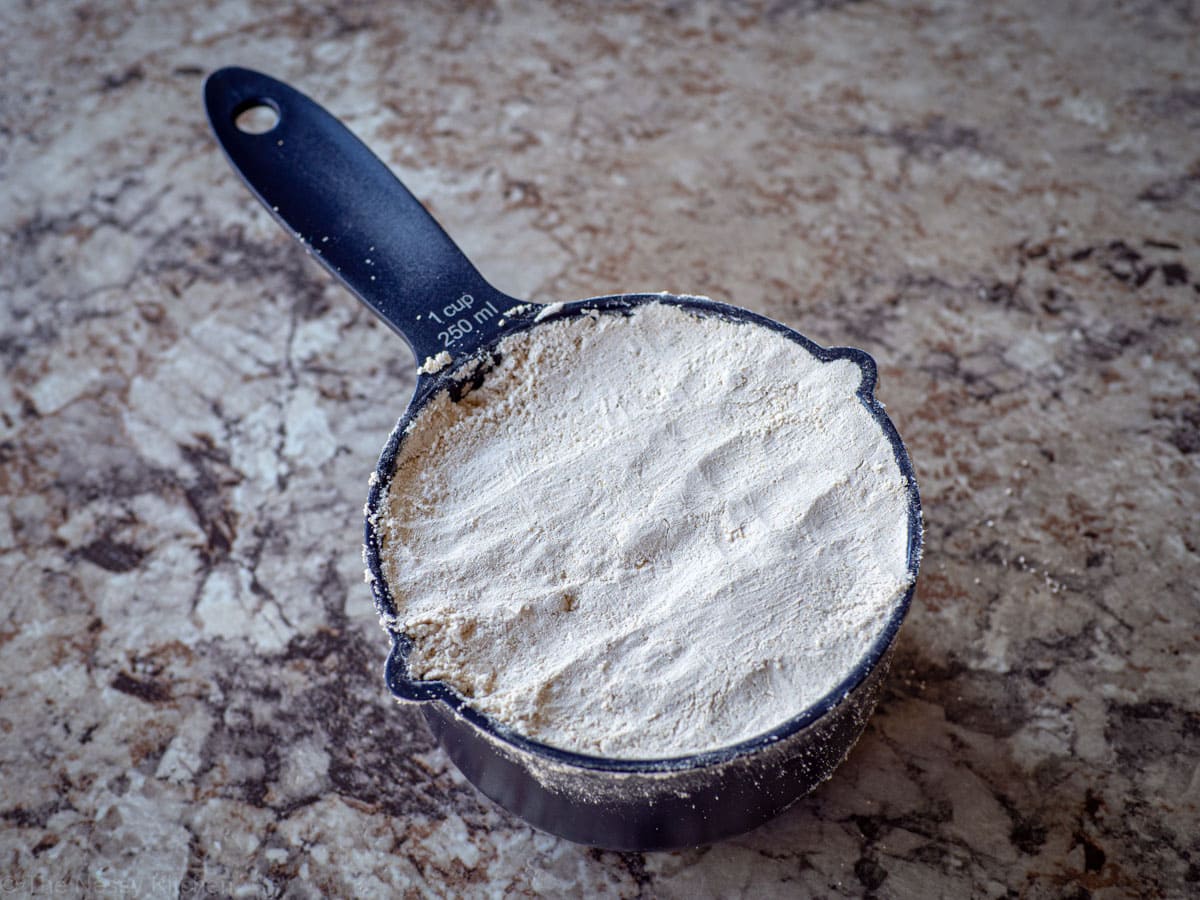
Affects of Oat Flour on Baking
When it comes to baking, oat flour can produce different results compared to traditional wheat flour. Here's how it affects baking in terms of color, texture, and flavor:
Color: Oat flour tends to impart a slightly darker color to baked goods compared to those made with all purpose wheat flour which is due to the natural color of oats.
Texture: Baked goods made with oat flour may have a slightly denser and chewier texture compared to those made with wheat flour. It also absorbs more moisture than wheat flour, which can affect the overall texture of baked goods and could cause them to be more gummy. And because of the absence of gluten, oat flour baked goods can be a bit crumblier as well.
Flavor: Oat flour imparts a subtle nutty flavor to baked goods, which may or may not be appreciable depending on the other flavors in the recipe. For example, you may not notice it in brownies, where the chocolate is such a strong flavor but may notice it more in chocolate chip cookies.
Substituting Oat Flour for Other Flours
Oat flour can be a versatile ingredient in baking, but it's essential to understand how it compares to other flours when considering substituting.
Regular Wheat Flour: Wheat flour provides structure and elasticity due to its gluten content, whereas oat flour lacks gluten and tends to produce denser baked goods.
When substituting oat flour for wheat flour, it's best to start with recipes where elasticity and structure are less of a concern, such as cookies.
Almond Flour: Almond flour is made from finely ground almonds and is commonly used in gluten-free and low-carb baking but is not ideal if you need a nut free option.
If substituting oat flour for almond flour, it is important to note that oat flour absorbs considerably most moisture than almond flour which will affect the texture.
Coconut Flour: Coconut flour is made from dried coconut meat and is highly absorbent, requiring more liquid than other flours.
Oat flour may not absorb as much liquid as coconut flour, so you may need to increase the amount of flour used in the recipe.
Best Recipes to Sub Oat Flour
If you're thinking about experimenting with oat flour, I recommend starting with recipes that are more forgiving and don't depend as much on gluten for structure such as:
- Muffins
- Cookies
- Pancakes
- Crisps and Crumbles
- Sauces (as a thickener)
Worst Recipes to Sub Oat Flour
The following types of recipes are more finnicky and will require multiple adjustments to use oat flour.
- Yeasted Breads
- Pastries (such as croissants)
- Delicate cakes (like angel food cake)
- Pies with delicate crusts (such as flaky pie crusts)
- Recipes that require a high rise (like soufflés)
FAQs
No, oat flour is made from ground oats, while regular flour is made from wheat.
In some recipes, yes. However, oat flour has different properties, so adjustments may be needed.
In recipes that depend strongly on the gluten for structure (such as sandwich bread), a straight swap of oat flour will not work.
However, in recipes that don't rely on the gluten as much for binding or rising such as smaller baked goods like muffins, cookies or pancakes, you can try working with oat flour.
Oat flour also works in recipes where the purpose of the flour is to absorb moisture or thicken such as gravies or breading fried (or air-fried) foods.
Yes, oat flour is naturally gluten-free, but ensure it's certified gluten-free to avoid cross-contamination.
Oat flour has different properties than almond or coconut flour, so substitution may not always work well and will likely need additional adjustments.
No, oat flour is simply made up of ground oats which are 66% carbohydrates by weight.
I hope that this helped to answer some of your questions about oat flour! If there is anything else you are wondering that I can help with, please let me know in the comments! And be sure to check out these other posts for more info.

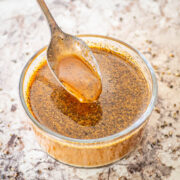
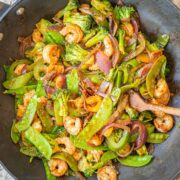


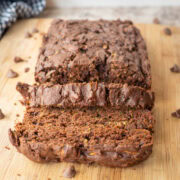

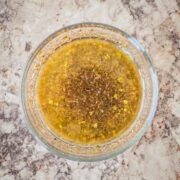


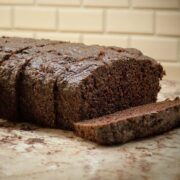
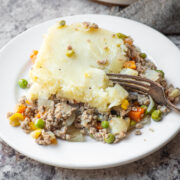
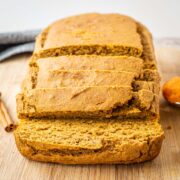
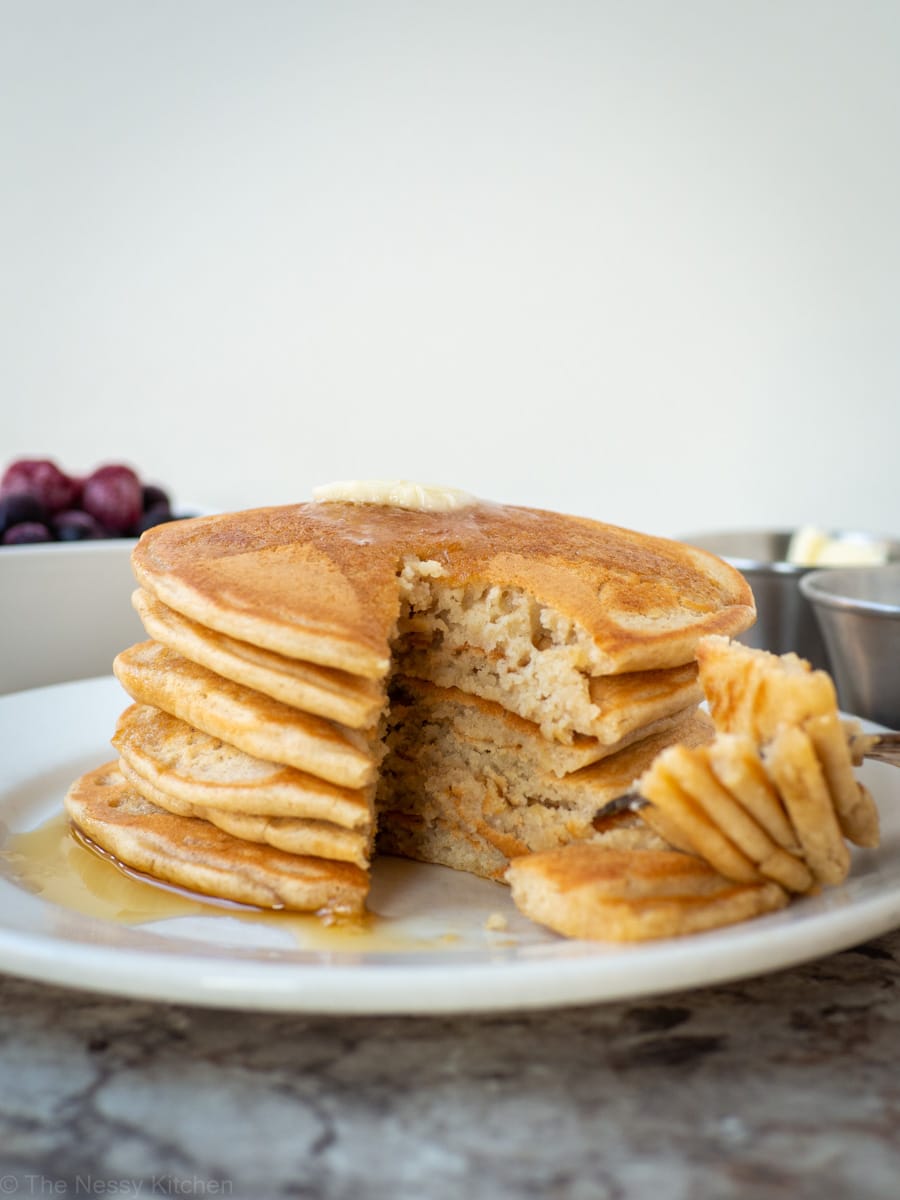

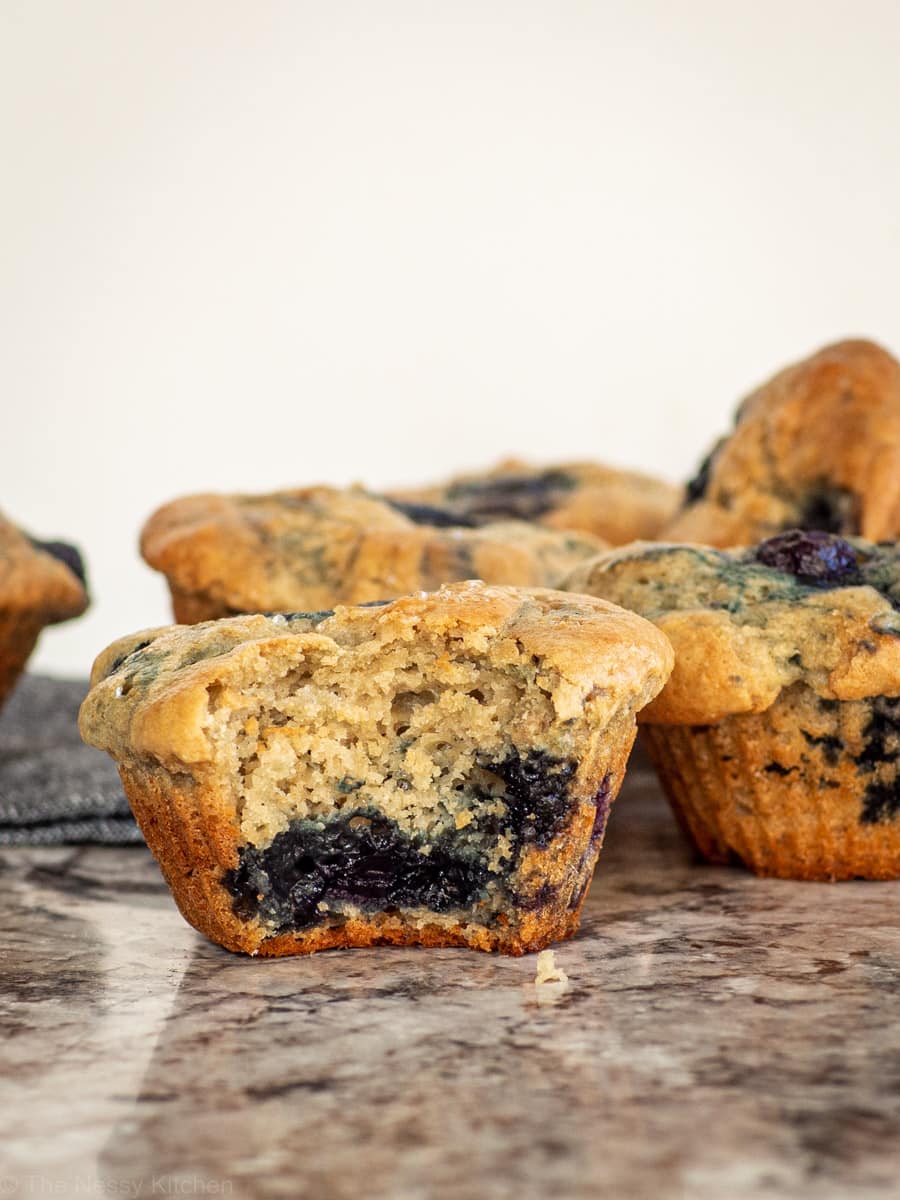
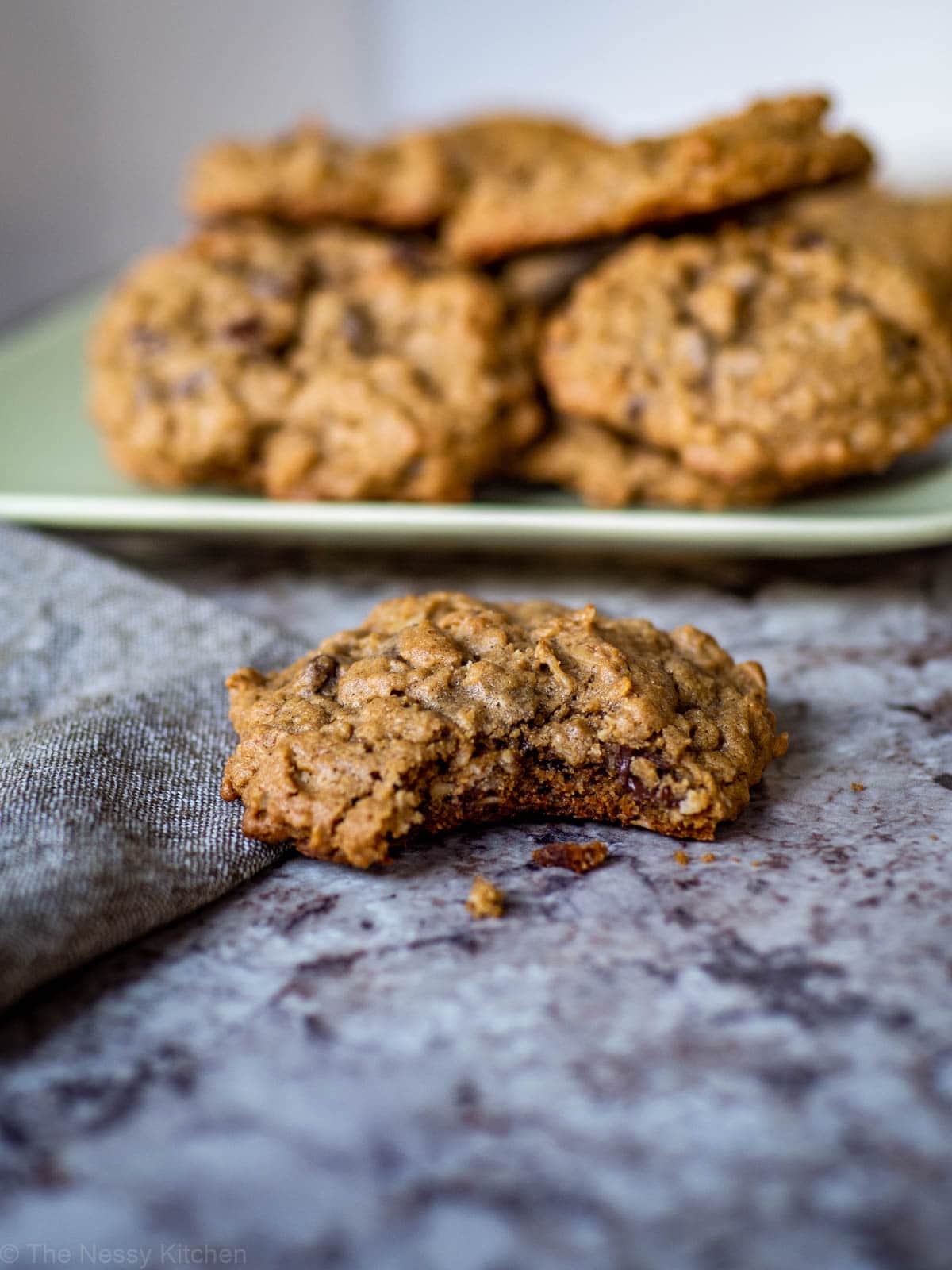
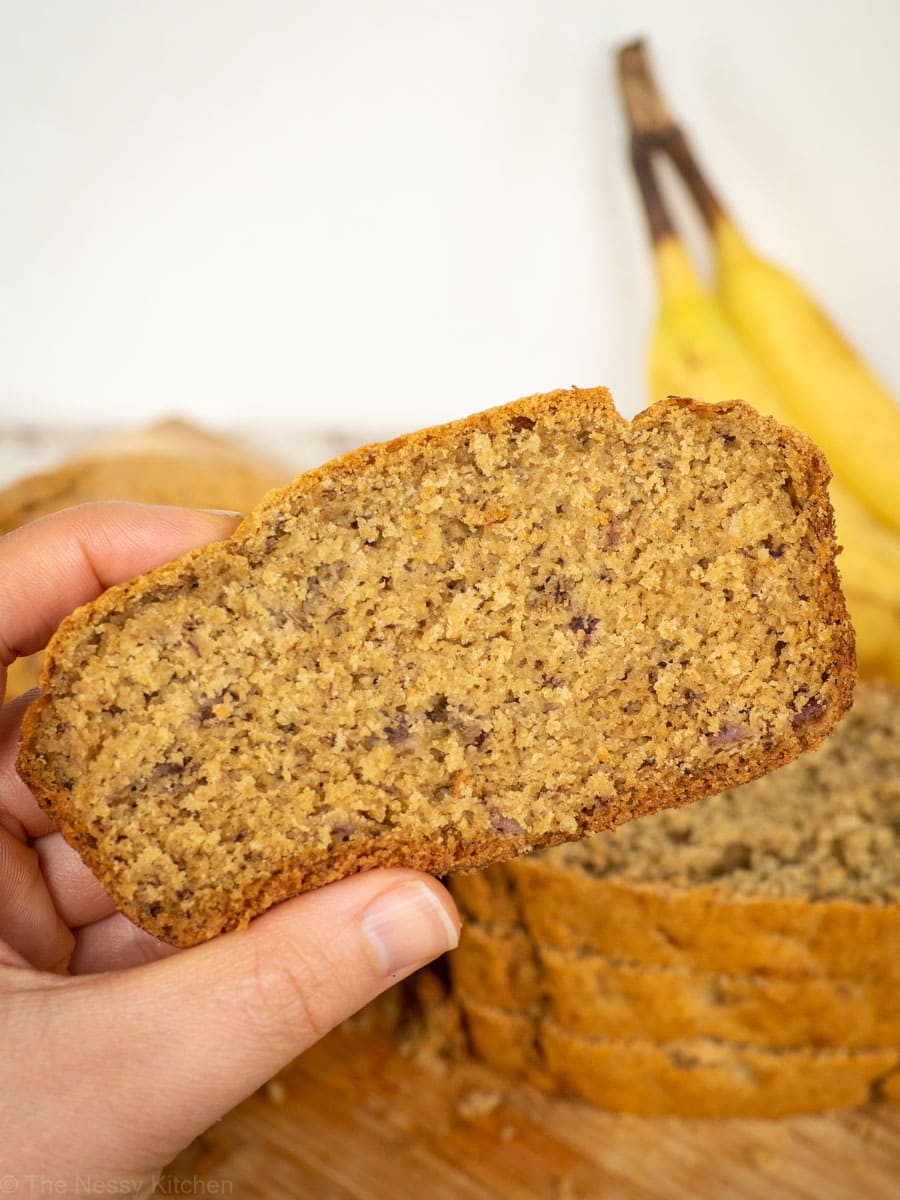
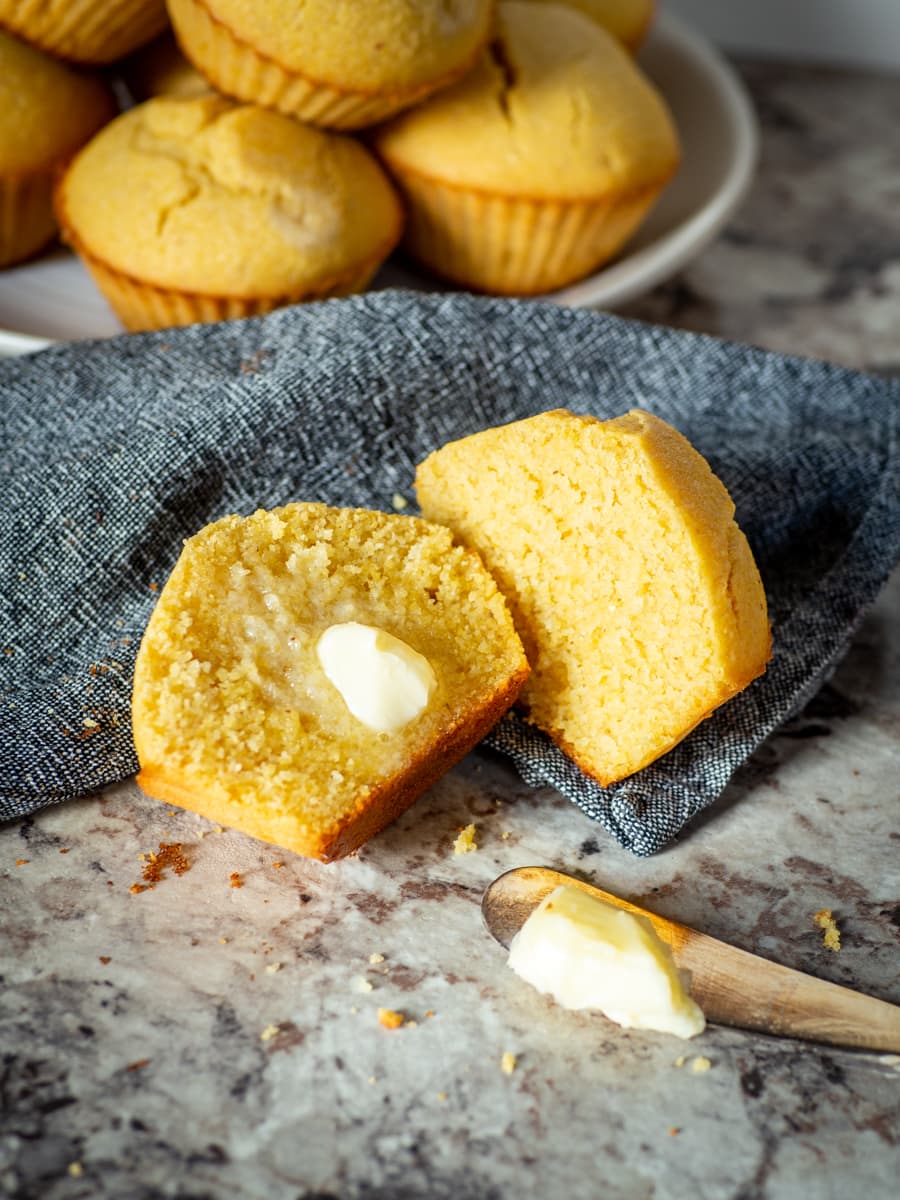
Comments
No Comments